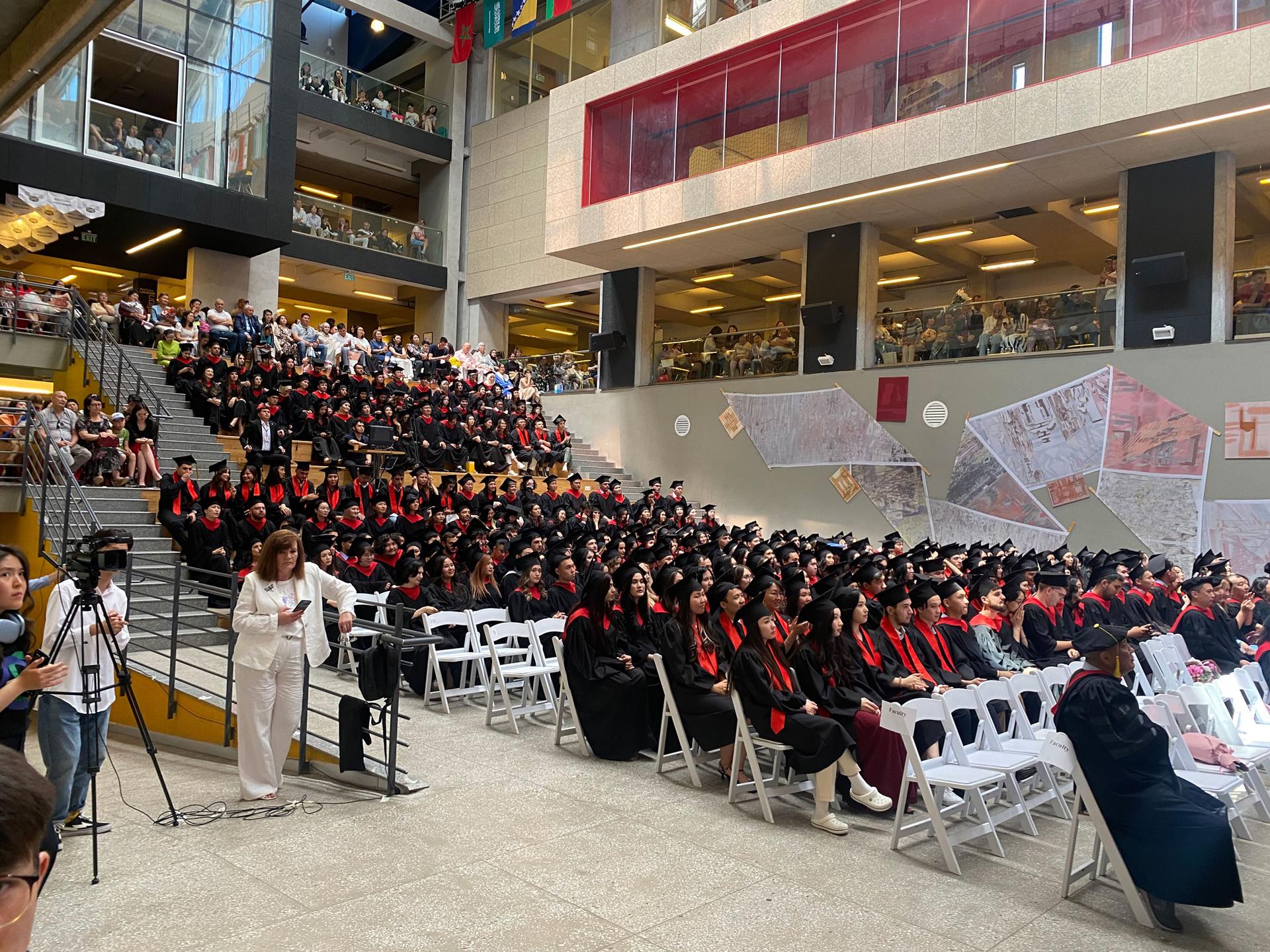When the Afghan capital of Kabul fell to the Taliban in 2021, thousands of young people faced an uncertain future — especially if they worked for causes that did not align with the new government.
Shams, a 27-year-old Afghan student based in Kyrgyzstan, said that his work as a development worker got him blacklisted for refusing to pay taxes to the Taliban.
“These were things that the Taliban didn’t really like, and that kind of put me in their blacklist,” said Shams, who asked not to use his last name.
In 2021, an international group of volunteers, organized in part by faculty at Bard College in New York, worked to evacuate more than 300 young Afghans to Kyrgyzstan, including Shams. The same team helped them get student visas and scholarships to continue their education.
After two years of study, Shams and other students who graduated this spring again face an uncertain future. Many who cannot return to Afghanistan are now trying to make it to the United States.
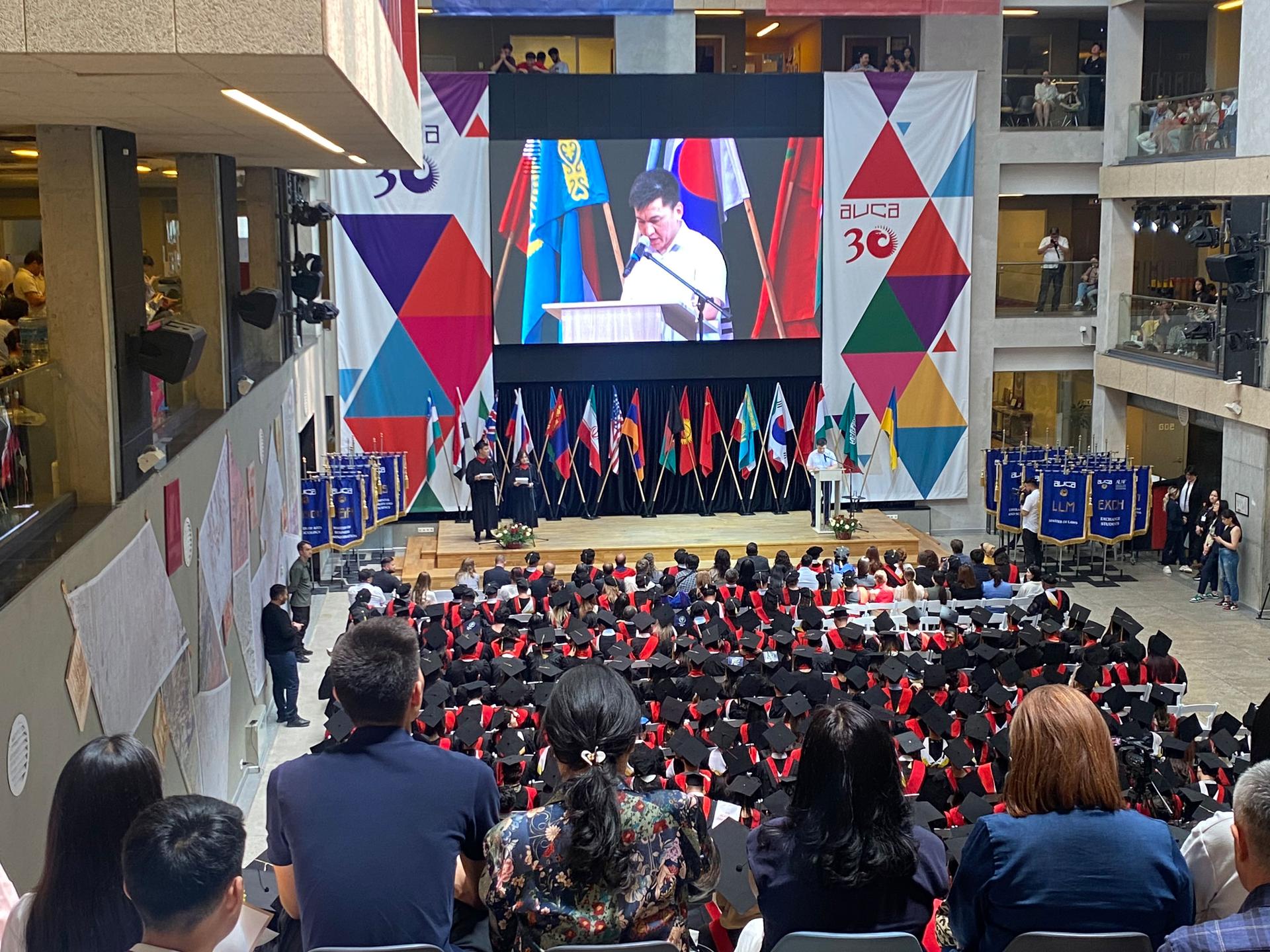
Many students had ties to the American University of Afghanistan (AUAF), which closed just before the Tabilan reached Kabul. And most have now applied for a program called P-1 that would allow them to enter the US as refugees. But getting their cases accepted is taking longer than many expected.
“Most of us are worried that Trump might win the presidency back from Biden and we won’t have the chance to go there,” Shams said.
Some students have already completed two master’s degrees, and, if their applications are not approved by the end of summer, they may have to begin a third master’s program in order to maintain their student status and stay legally in Kyrgyzstan.
Some of the students have already gained approval to come to the United States soon through the P-1 program. But nearly 150 are still waiting for news about their status.
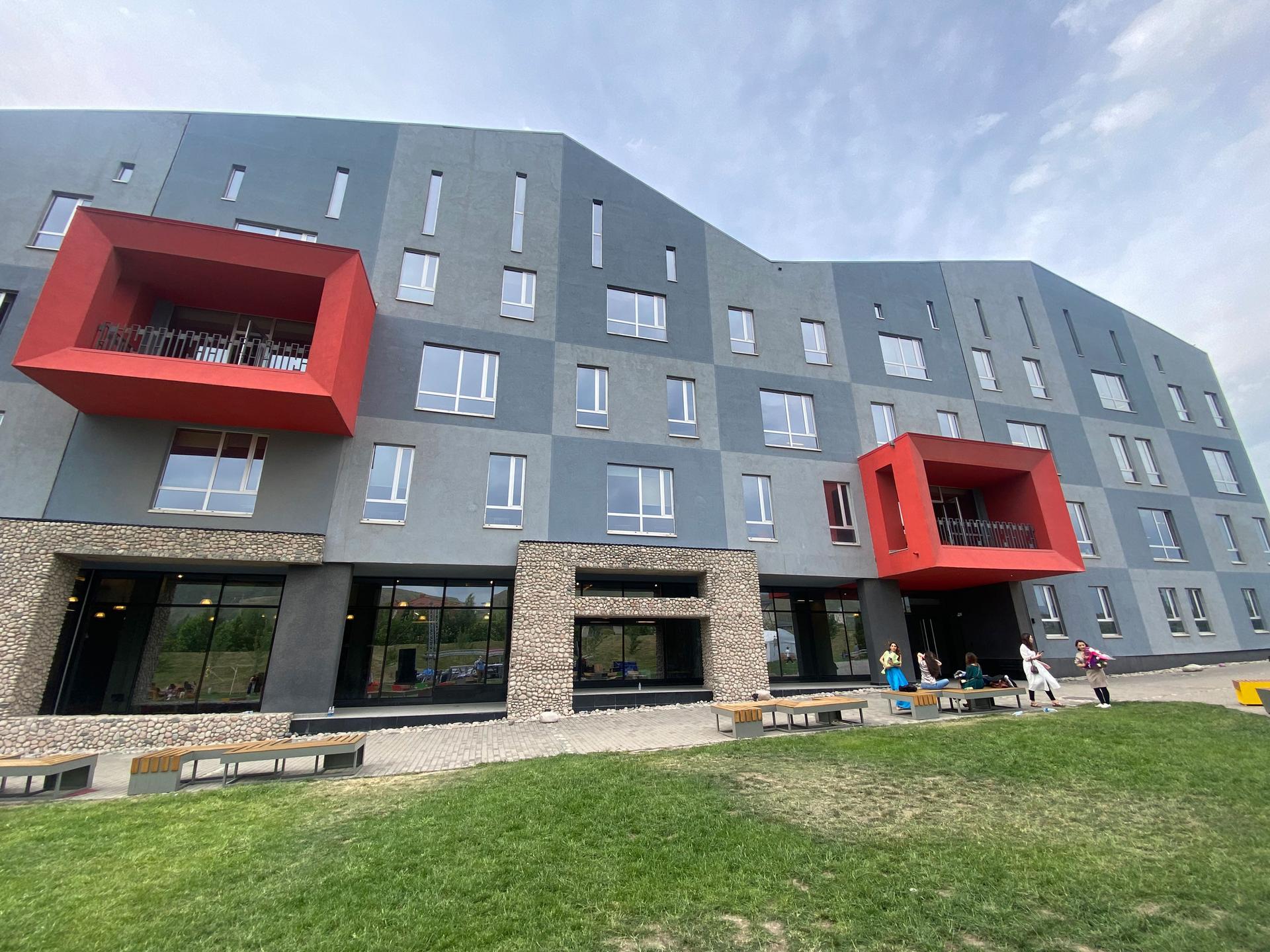
The uncertainty makes some of them anxious about their futures.
“I want to get married and have kids, but I can’t plan for these things right now,” Shams said.
But even in these circumstances, the students said they are still grateful to be in Kyrgyzstan.
A 24-year-old Afghan woman who just graduated from AUCA – and declined to give her name for security reasons – said that she felt like all of her education had been in vain when she heard that Taliban entered the capital in 2021.
“The only thoughts in my mind at that time were that my dreams are all gone and I’ll be like a housewife.”
The Taliban eventually banned women in Afghanistan from attending high school and college.
The young woman said that the opportunity to come to Kyrgyzstan was a blessing, but she also feels sad and frustrated sometimes because of what her friends back in Afghanistan are living through.
“I cannot fully enjoy the rights I have here because my close ones – my Afghan women – they are suffering,” she said.
Millions of Afghan women are no longer studying. In this challenging situation, other institutions are doing everything they can to help educate Afghans, including the American University of Afghanistan (AUAF), which still doesn’t have a physical presence in the country.
“We haven’t stopped for a minute,” said AUAF President Ian Bickford.
Bickford said the university was able to resume classes for students online just two weeks after the government changed in Afghanistan. The university recently reopened in Qatar.
But there are still far more Afghans who want a shot at an education than are receiving aid.
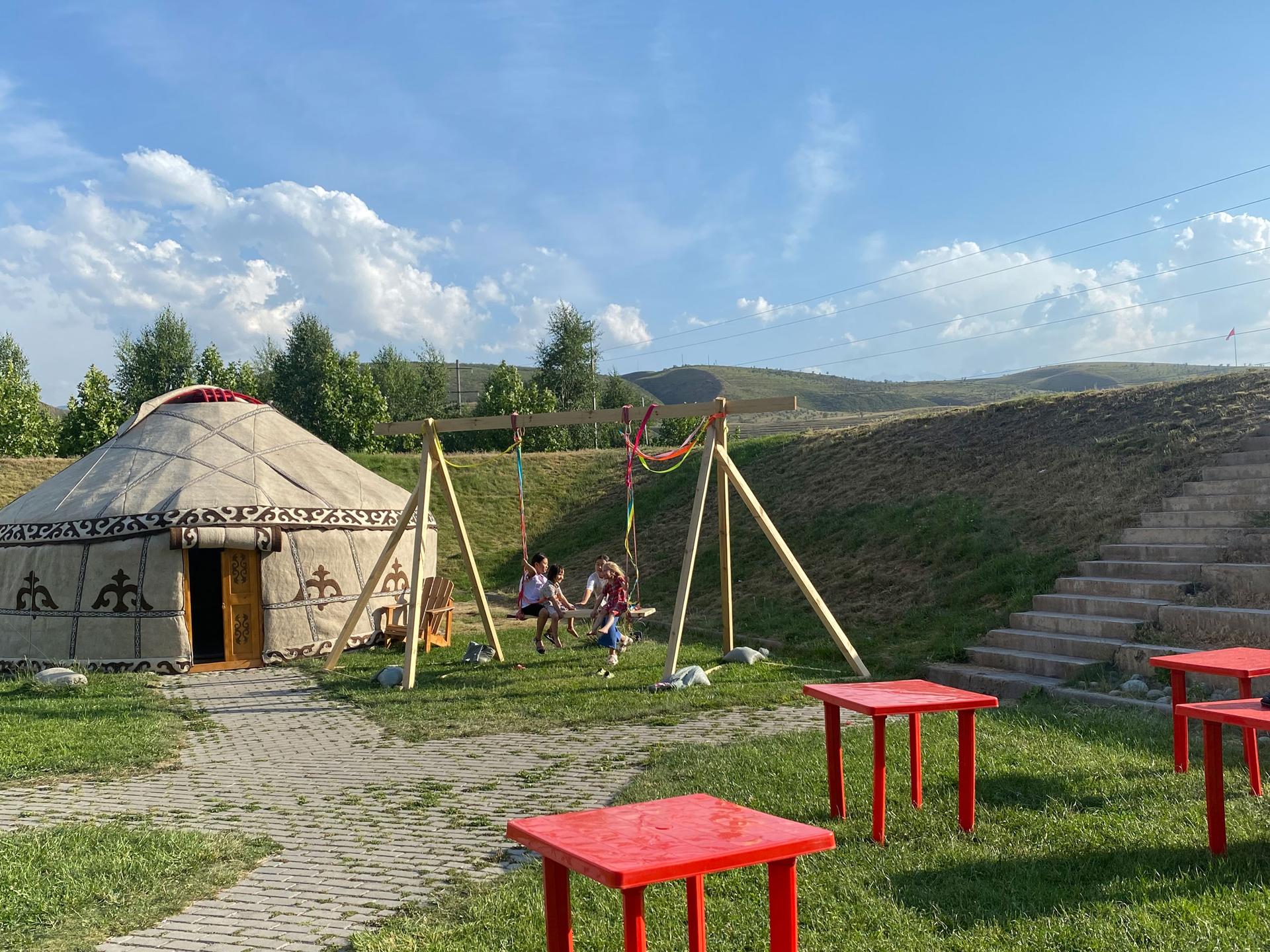
Jonathan Becker, acting president of AUCA, said that US institutions, especially, could do far more.
Becker said that he and his partners have actually found scholarship money to pay for Afghan students’ room and board, but some US universities still refuse to host them.
“There are many institutions which have a huge amount of resources which they could put toward supporting Afghan refugees, and they choose not to use these resources,” Becker said.
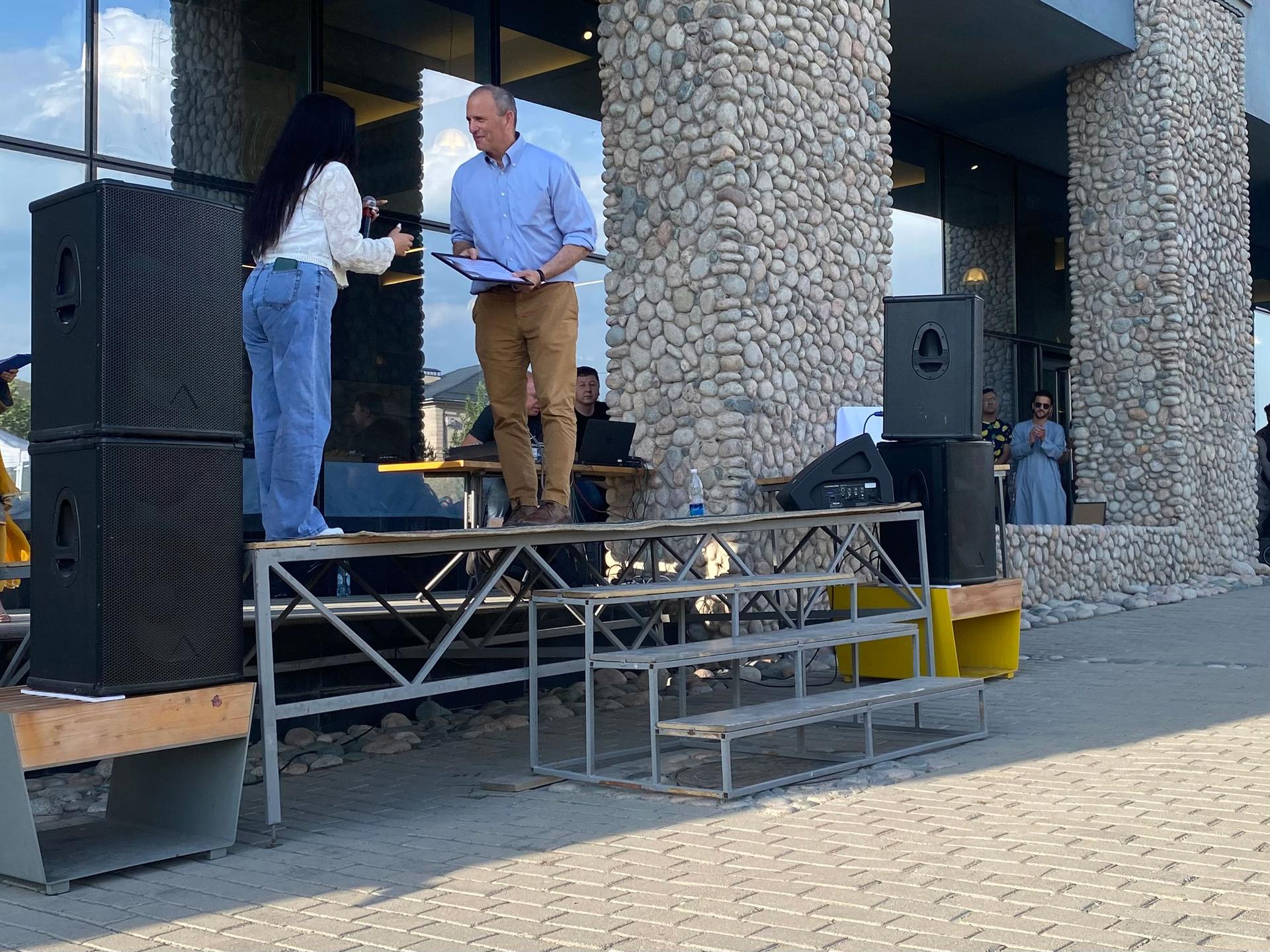
Afghan students in Bishkek, Kyrgyzstan’s capital, are doing what they can to help educate Afghans in their home country. The students have raised money to start a school in Afghanistan, launch work training programs for women and founded a mentoring organization to help Afghans study abroad.
“It is difficult now to return back home, but it is not difficult to make a meaningful contribution to the community,” said Wasal, 25, a graduate student in anthropology at AUCA, who also asked not to use a last name.
The students in Bishkek feel they have a huge responsibility to use their education to help Afghanistan.
As the world’s attention shifts away from their homeland, it feels like no one else will.
The World is an independent newsroom. We’re not funded by billionaires; instead, we rely on readers and listeners like you. As a listener, you’re a crucial part of our team and our global community. Your support is vital to running our nonprofit newsroom, and we can’t do this work without you. Will you support The World with a gift today? Donations made between now and Dec. 31 will be matched 1:1. Thanks for investing in our work!
